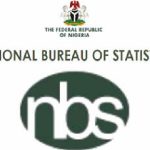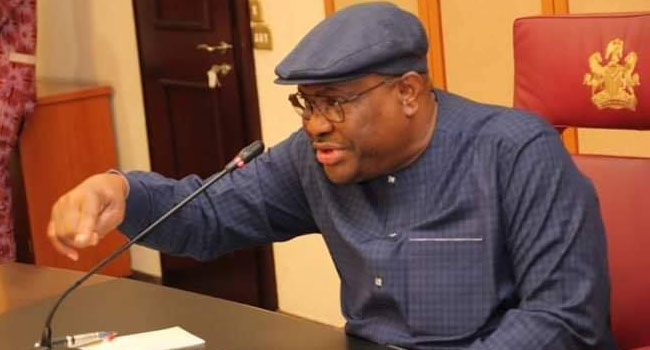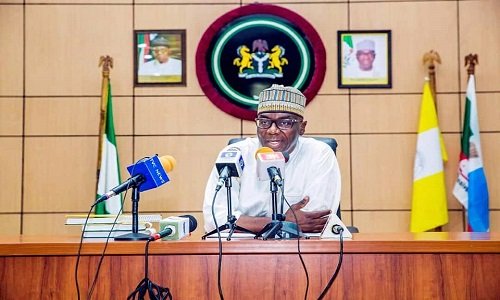Nigerian poets have been tasked with the responsibility of writing for social change. This was the highlight of the REDi WED Dialogue and PoetryFest 2020 held yesterday in commemoration of the World Environment day.
Poets drawn from different parts of Nigeria converged on a virtual platform to perform and chart a common path of engagement with the society to influence environmental policies that will improve the quality of life and protect the environment. Chaired by the writer, poet and environmentalist, Ekaette George, the session was split into two beginning with a folkloric poetry performance by Iquo Diana Abasi.
During the first panelists’ session with the theme, “Bio-diversity in Nigeria: Art and Activism”, the author and poet who chaired Friends of the Earth International from 2008 till 2012 described the human being as an “eco-system with lots of organisms living within.’’ He added that art must have a purpose and be objective.
Another poet and co-founder, Policy Alert, Tijah Bolton Akpan remarked that it is important to make sense of our environment and move towards sustainability. “The mindless of extraction of mineral resources in the Niger-Delta should be a reason for artists to write. For Diego Odoh Okenyodo, an activist poet who is one of the founders of Kaduna Writers’ League and a director at Splendors of Dawn Poetry Foundation, writing alone is not what you need to create social change.
“Writers need to learn how to write policy briefs. They need to connect with other writers and organisations,’’ he urged.
In her intervention, Betty Abah, a journalist, author also known as a women and children’s rights activist, reflected on the positive side to the covid-19 pandemic on the planet.
“The planet is heaving a sigh of relief from the weight of human activities and sheer oppression. Covid-19 should leave us better than it met us, that is it should give way to a new world order. Humans had been a threat to the environment,’’ she observed.
As the Founder and Executive Director of CEE HOPE, a girl-child rights and development non-profit organization based in Lagos, she has the first-hand experience of how women have been at the frontline of this widespread environmental degradation.
“Women suffer higher level of oppression by the extractive industry in the Niger Delta. We should use our poetry to say that we can be better than this. We should be more friendly with the earth. Writers have the responsibility to communicate this,’’ she said.
In her intervention, Betty Abah, a journalist, author also known as a women and children’s rights activist, reflected on the positive side to the covid-19 pandemic on the planet.
“The planet is heaving a sigh of relief from the weight of human activities and sheer oppression. Covid-19 should leave us better than it met us, that is it should give way to a new world order. Humans had been a threat to the environment,’’ she observed.
As the Founder and Executive Director of CEE HOPE, a girl-child rights and development non-profit organization based in Lagos, she has the first-hand experience of how women have been at the frontline of this widespread environmental degradation.
“Women suffer higher level of oppression by the extractive industry in the Niger Delta. We should use our poetry to say that we can be better than this. We should be more friendly with the earth. Writers have the responsibility to communicate this,’’ she said.
A brief poetry performance by the poet and activist, Odia Ofeimun provided a sweet interlude to the PoetryFest with poems titled “Come Over Finima and Help Us’’ and “The Mother of All Mischief.’’ Another reverberating performance came from Graciano Enwerem and later, Fortune George. The Gombe-based poet, Adam Usman Garko also performed his poem titled, “No Place Like Home.’’
At the second session titled “Communication for Change’’, Okenyodo pointed out that although writing is a solitary assignment, activism requires connecting with the people and understanding the developmental issues that need to be addressed. For Chitzi Ogbumgbada, understanding the nature of justice will prove instructive for activists.
The Founder and Executive Director, KebetKache Women Development and Resource Centre, Emem Okon, who just completed a tree planting exercise with some women added her voice to the call for action.
“Women can be change agents contributing to environmental justice. December 17 has been set aside for women in the Niger-Delta to make their voices heard in the issue of environmental justice. We go to schools and communities to support women and we give books to women to inspire them to write about the environment,’’ she said.
The World Environment Day is celebrated annually on June 5 to promote awareness and action for the protection of the environment. Inaugurated in 1974, it has been a launchpad for the global campaign on environmental issues such as marine pollution, human overpopulation, global warming, sustainable consumption and wildlife crime.















